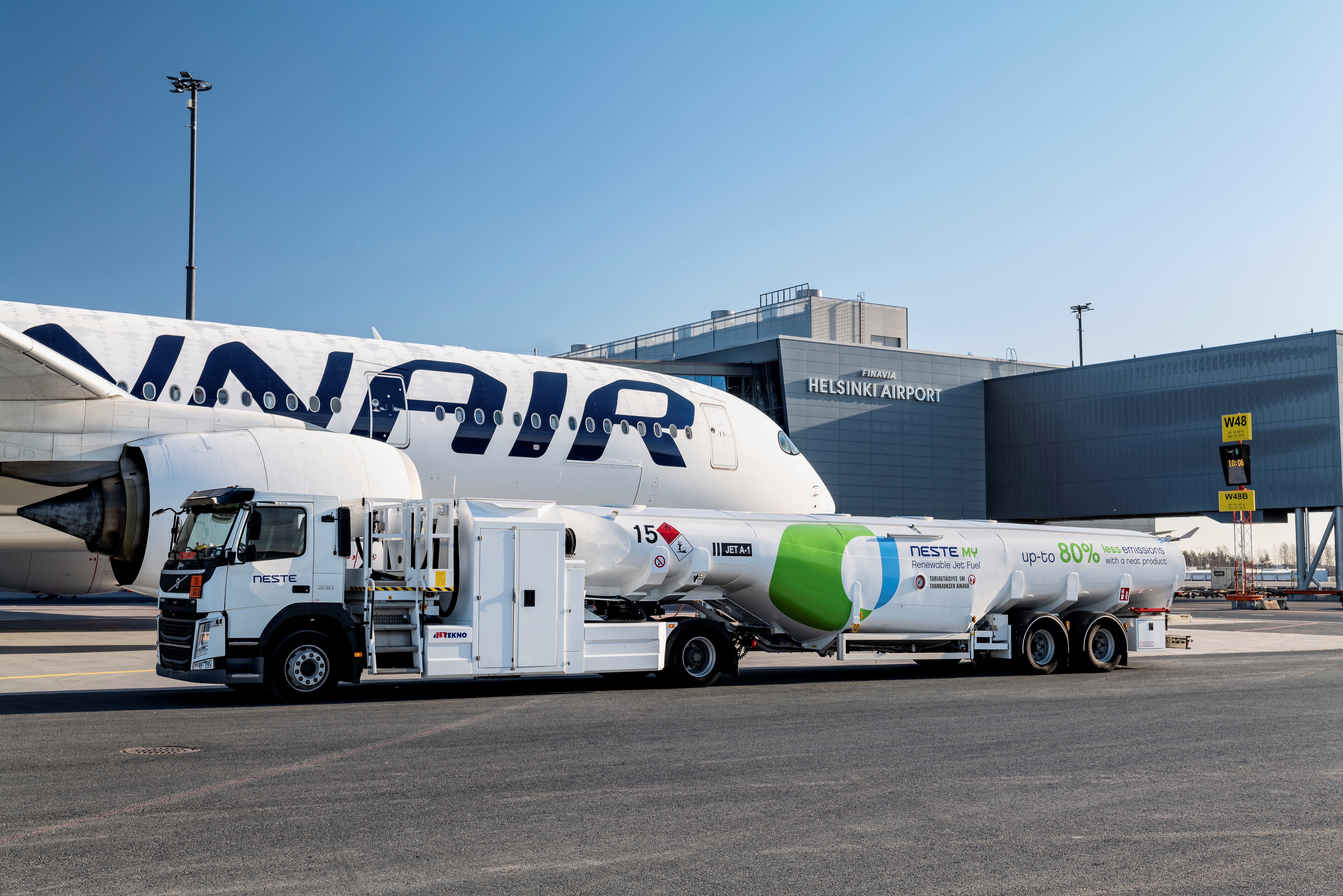Earlier this week, three major aviation, energy, and corporate travel players announced they had launched a blockchain-based book-and-claim platform for sustainable aviation fuel (SAF). But what exactly is Book-and-Claim, and why does it matter when it comes to boosting the production of SAF? Let's take a closer look at this climate accounting feature that could hold one of the keys to reducing aviation emissions over the long-haul.
Balancing out demand and supply geographically
Sustainable aviation fuel production is still in its infancy, and most likely, SAF will not begin to make any significant dent in airline emissions until about ten years from now. The volumes accessible to airlines today make up an abysmal 1% of all jet fuel uplifted globally. However, significant investments are being made, incentives and mandates are on the way, and corporate travelers and their ESG CO2 targets will help further increase demand over the coming years.
However, some regions have gotten further along than others when it comes to SAF production. This means that airlines that might wish to use the fuel are not able to get it to their aircraft without significantly costly - and emission-generating - logistics. For instance, European and US airlines are committing to using about 10% SAF for their operations by 2030. In contrast, Latin America's LATAM has set its target at 5%, not due to lack of will but because of the obstacles to getting its hands on more.
Decoupling customer and product
The same goes for companies that want to pay for SAF for their business travel. Some will have direct access at leading SAF airports such as Amsterdam Schiphol and San Francisco. However, in most parts of the world, SAF is still highly scarce, if available at all. As such, even though corporates may wish to pay the premium that SAF entails and have the funds to do so, it is simply not available for the particular flights their employees are taking.
Enter Book-and-Claim, a system that decouples the consumer from the actual physical product while they are still allowed to claim the CO2 reduction that their purchase achieves. Let's say company X is sending its CFO on a business trip from Santiago to Buenos Aires, and they want to reduce the journey's carbon footprint, but SAF is not accessible at any of those airports.
They can then pay for SAF to be fueled onto another aircraft somewhere in the world where it is available, and still get to claim the CO2 reduction for the company's climate accounting toward Scope 3 emissions. Preferably, this will be where the SAF production facility is as close as possible to the airport, cutting down road transportation. Meanwhile, it will also allow companies to purchase any amount of SAF from the available global pool and not be limited by supply at one location.
Global certification mechanisms needed to protect further harm
Of course, there are several potential pitfalls to such a system. For instance, customers may choose to buy SAF from regions where it is less expensive but potentially less regulated in terms of which biofuels (while we wait for the Power-to-Liquids with all that entails) are classified as sustainable. A global classification system along with transparent certification is key to the industry not grasping for a cheaper climate-mitigation mechanism while, for instance, contributing to the loss of biodiversity (a threat often overlooked when discussing environmental impact) or even hunger by using food crops as fuel.
While the initial volumes of SAF offered through book-and-claim systems may not be gigantic, they are far from trivial. You cannot provide something at scale before it is available at scale. In order to drive demand and supply and reduce costs, every little bit helps. Even if companies choose to make green statements and investments to appear more sustainable, the impact of such agreements remains the same - a snowball effect that will help drive demand and production in a positive upward spiral.



